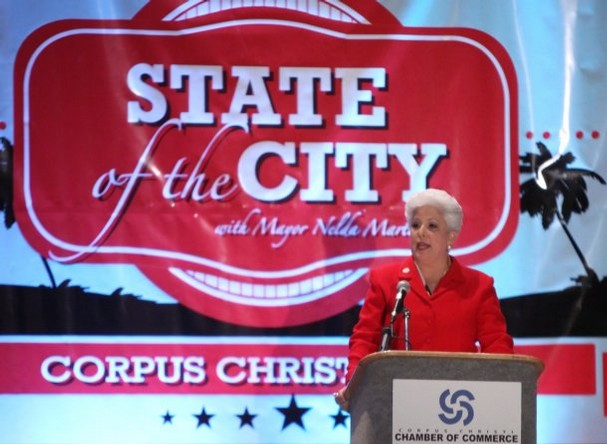If you’ve been waiting for the right moment to enter the housing market, you may want to start paying attention. Inventory is climbing, and first-time buyers are beginning to reappear, suggesting a subtle shift in momentum. But while opportunity may be knocking, challenges like high prices and stiff competition still stand in the way.
A Quick Look at the Market:
According to the National Association of REALTORS® (NAR), existing-home sales—which include single-family homes, townhomes, condos, and co-ops—fell by 0.5 percent in April compared to March. Compared to the same time last year, sales are down by 2 percent.
So, what does this mean? More homes are hitting the market, but buyers are hesitant, keeping sales activity slower than expected. This could open the door for first-time buyers who are prepared to act decisively.
First-Time Buyers Are Reemerging:
One of the more encouraging trends is the return of the first-time homebuyer. In April, 34 percent of existing-home sales were made by first-timers. That’s the highest share recorded since July 2020, showing that more new buyers are finding pathways into the market.
For many, this may be a signal that the tide is turning—especially for those who have been waiting on the sidelines.
It’s Still a Seller’s Market, But Conditions Are Evolving:
Make no mistake, sellers still hold the upper hand. The median price for existing homes rose to $414,000 in April, a 1.8 percent increase over the previous year. However, that growth rate is slower than it has been in recent years.
Inventory is up nearly 21 percent year-over-year, offering more choices for buyers and opening up potential for negotiation. According to NAR’s Chief Economist Lawrence Yun, a drop in mortgage rates could quickly unleash pent-up demand from buyers who have been waiting for relief.
Competition Remains High
More inventory doesn’t mean less competition. Many homes are still attracting multiple offers and selling quickly. NAR’s recent Confidence Index found that:
-
60 percent of homes sold in under a month
-
18 percent sold for more than the asking price
-
Homes received an average of 2.4 offers
-
25 percent of buyers paid with all cash
-
20 percent waived inspections or appraisals to stay competitive
This data shows that serious buyers are acting quickly & strategically and that first-time buyers need to come prepared to make an offer.
Regional Breakdown
Here’s how sales and pricing trends played out across the country in April:
-
Northeast: Median price $487,400, up 6.3 percent year-over-year
-
Midwest: Median price $313,300, up 3.6 percent
-
South: Median price $365,300, down slightly by 0.1 percent
-
West: Median price $628,500, down 0.2 percent
Final Thoughts
For first-time homebuyers, the current market presents a rare mix of opportunity and challenge. While prices remain high and competition is real, rising inventory and shifting market dynamics are creating windows of possibility. If you’re ready to buy, this could be a smart time to take the next step—especially if you’ve already built up your savings, secured financing, and found a trusted real estate advisor. Preparation and timing will be your biggest assets in today’s market.





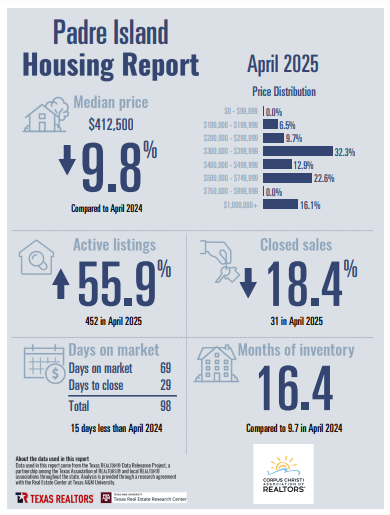
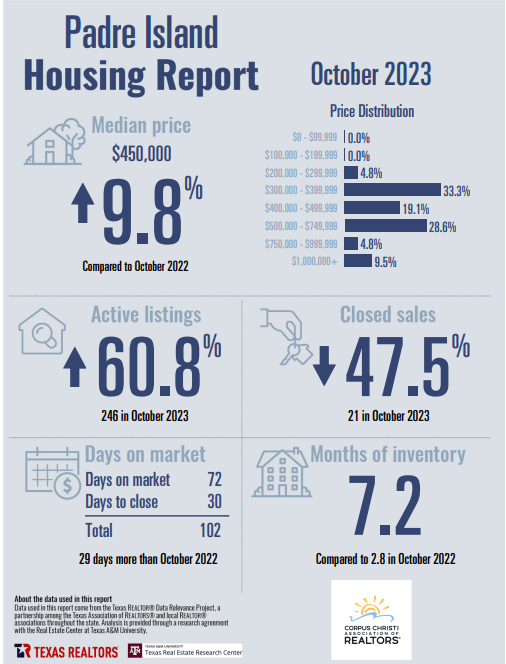
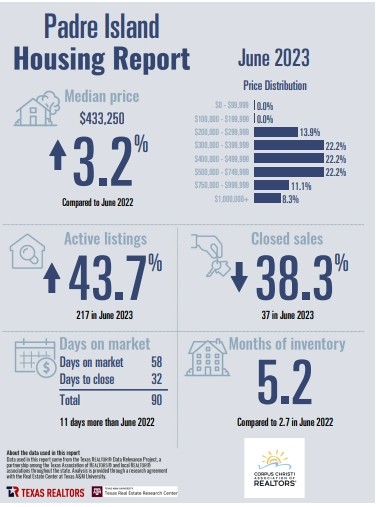
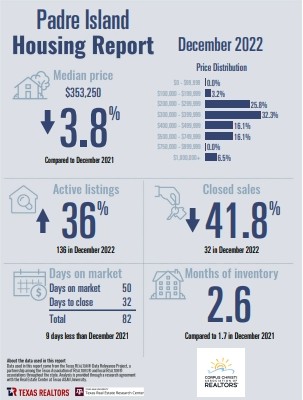

 CORPUS CHRISTI – Plunging oil prices may be a relief for Coastal Bend residents at the pumps, but they’re having little influence on rents or mortgage payments.
CORPUS CHRISTI – Plunging oil prices may be a relief for Coastal Bend residents at the pumps, but they’re having little influence on rents or mortgage payments.
 On Thursday, February 13th, at the Padre Island Business Association lunch, Jeff Shea, Site Manager for M&G Chemicals, spoke to update us on the M&G Chemicals PET/PTA Facility.
On Thursday, February 13th, at the Padre Island Business Association lunch, Jeff Shea, Site Manager for M&G Chemicals, spoke to update us on the M&G Chemicals PET/PTA Facility.